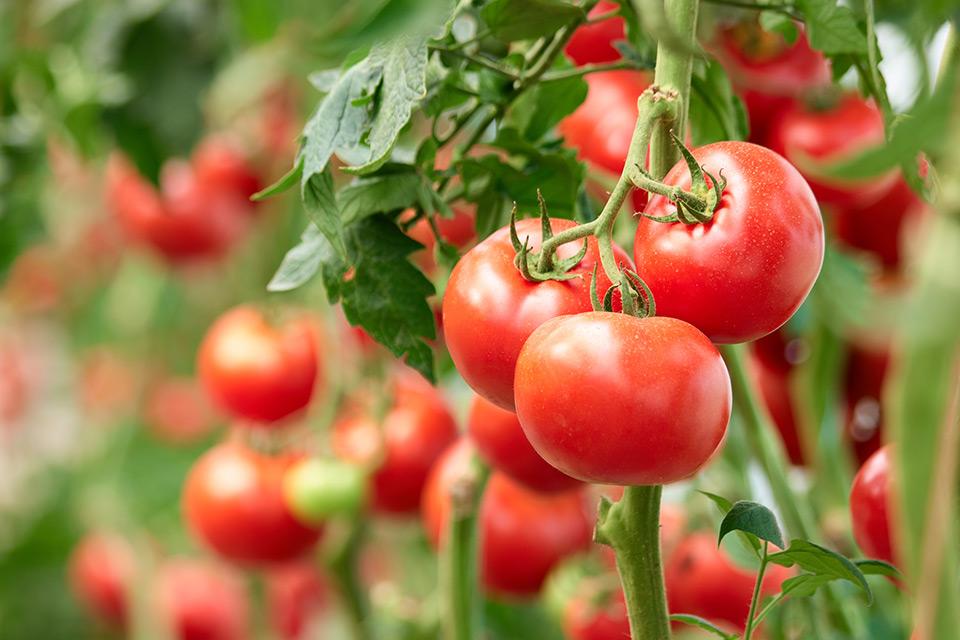Just like mom always said, “Be sure and eat your vegetables.” Eating vegetables is an important part of a healthy diet. Athletes and fitness enthusiasts understand vegetables as a valuable source of phytochemicals and incorporate them into their diets. According to research, phytochemicals provide antioxidant properties. Antioxidants are powerful substances that stabilize free radicals (cell-destroying atoms) in our body and help in disease prevention. Because of this benefit, vegetable consumption is linked to a decreased incidence of cancer, heart disease and degenerative illness.

Cooking Can Enhance Nutrient Value
Raw vegetables are thought to provide the best nutrients. While this may be the case for most veggies, cooking actually increases the nutrient values of some vegetables. According to an article published in the Journal of Agricultural and Food Chemistry, “many protective compounds are enhanced when vegetables are cooked.”
Tomatoes, broccoli and carrots are three vegetables shown to have improved nutrient value when cooked. It appears beneficial phytochemicals are trapped in the cell wall until a heating method is applied. We will be taking a look at how cooking enhances the nutrients in each of these vegetables.
Tomatoes
Tomatoes are scientifically labeled a fruit, but for cooking purposes referred to as a vegetable. They’re nutrient-dense and a rich source of vitamin C and lycopene. Lycopene is the phytochemical giving the tomato its red hue along with significant antioxidant properties.
The Journal of Agricultural and Food Chemistry published a study on the nutritional benefits of cooking tomatoes. Several cooking trials heated raw tomatoes to 190 degrees F for two, 15 and 30 minutes. Vitamin C and lycopene values were measured at each interval. Research results indicated a significant drop in vitamin C, but in contrast, a substantial increase in lycopene.
Steaming or boiling tomatoes is the preferred method of cooking to bring out more lycopene for optimal nutrition. Research indicates lycopene reduces the risk of cancer, improves heart health and enhances neurological response.
Broccoli
Broccoli is a cruciferous vegetable with superior antioxidant properties. Research has indicated broccoli contains phytochemicals carotenoids, polyphenols and glucosinolates. It’s also a rich source of lutein and tocopherol. These chemical compounds are shown to decrease cancer by reducing inflammation in our blood vessels. Broccoli is well-known as a detox vegetable and superfood.
The International Journal of Food Sciences and Nutrition published an article on how cooking broccoli affects nutrient value. It was determined various heating methods reduced the nutrient levels of five glucosinolate antioxidant compounds. At the same time, significant increases in lutein, carotene and tocopherols were reported from cooking broccoli, with longer heating time extracting even more.
According to research published in the Journal of Agricultural and Food Chemistry, cooking broccoli promotes the release of carotenoids.
Steaming and boiling broccoli are the preferred methods of cooking to enhance carotenoids like lutein and phytoene. Studies show phytoene reduces the risk of prostate cancer, improves heart health and reduces inflammation in our blood vessels.
Carrots
Carrots are a popular root vegetable. They are a rich source of beta-carotene, fiber and numerous vitamins and minerals. Carrots provide antioxidant health benefits attributed mostly to high concentrations of vitamin A and beta-carotene.
Research published in the Journal of Agricultural and Food Chemistry examined the nutrient value of carrots when exposed to different cooking methods. Antioxidant samples were measured after boiling, steaming and frying. Carotenoids, polyphenols, glucosinolates and ascorbic acid (vitamin C) were analyzed after cooking the carrots. Results indicated boiling carrots increased all carotenoids (antioxidants) by 14 percent. The other cooking methods caused a decrease in antioxidant value with frying reflecting the worst decline. Total antioxidant capacities (TAC) were compared during the cooking trial. Results agreed with prior research that “reported a significant increase of carrot TAC during a thermal treatment at 266 degrees F for 20 minutes.”
Boiling carrots retained the most vitamin C and carotenoids. Research results also “suggest that for each vegetable a preferential cooking method could be selected to preserve or improve its nutritional and physicochemical qualities.”
